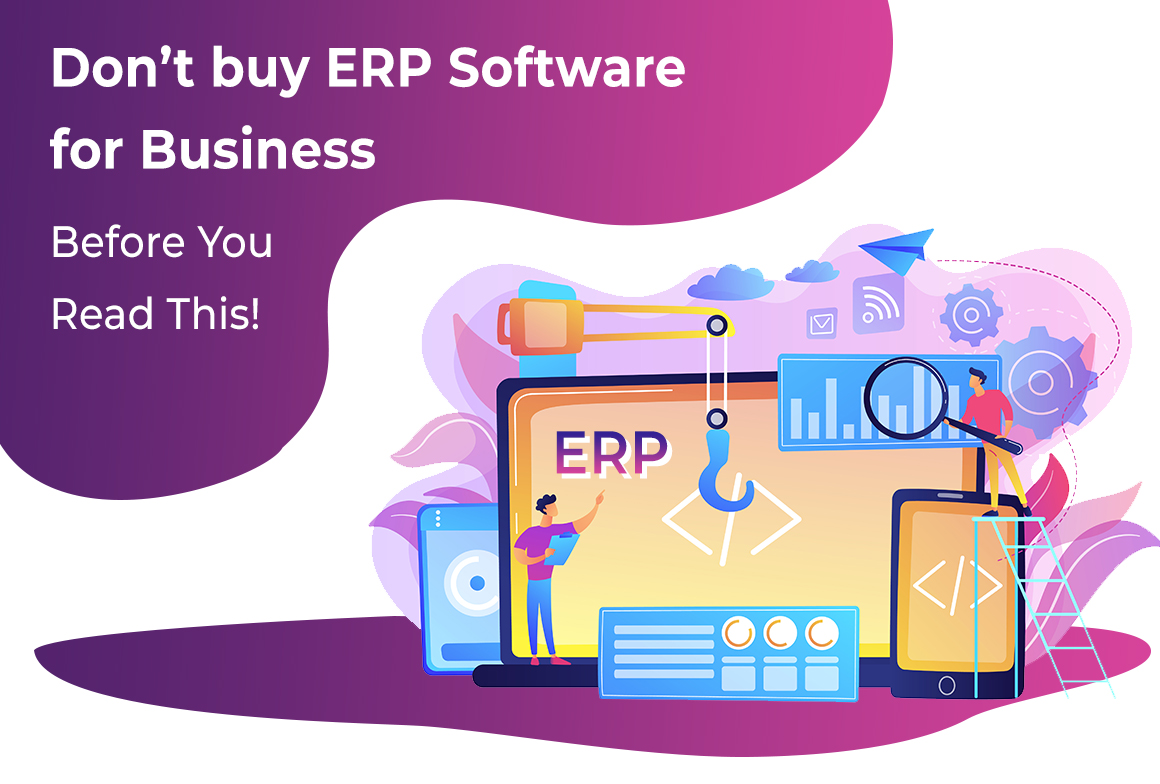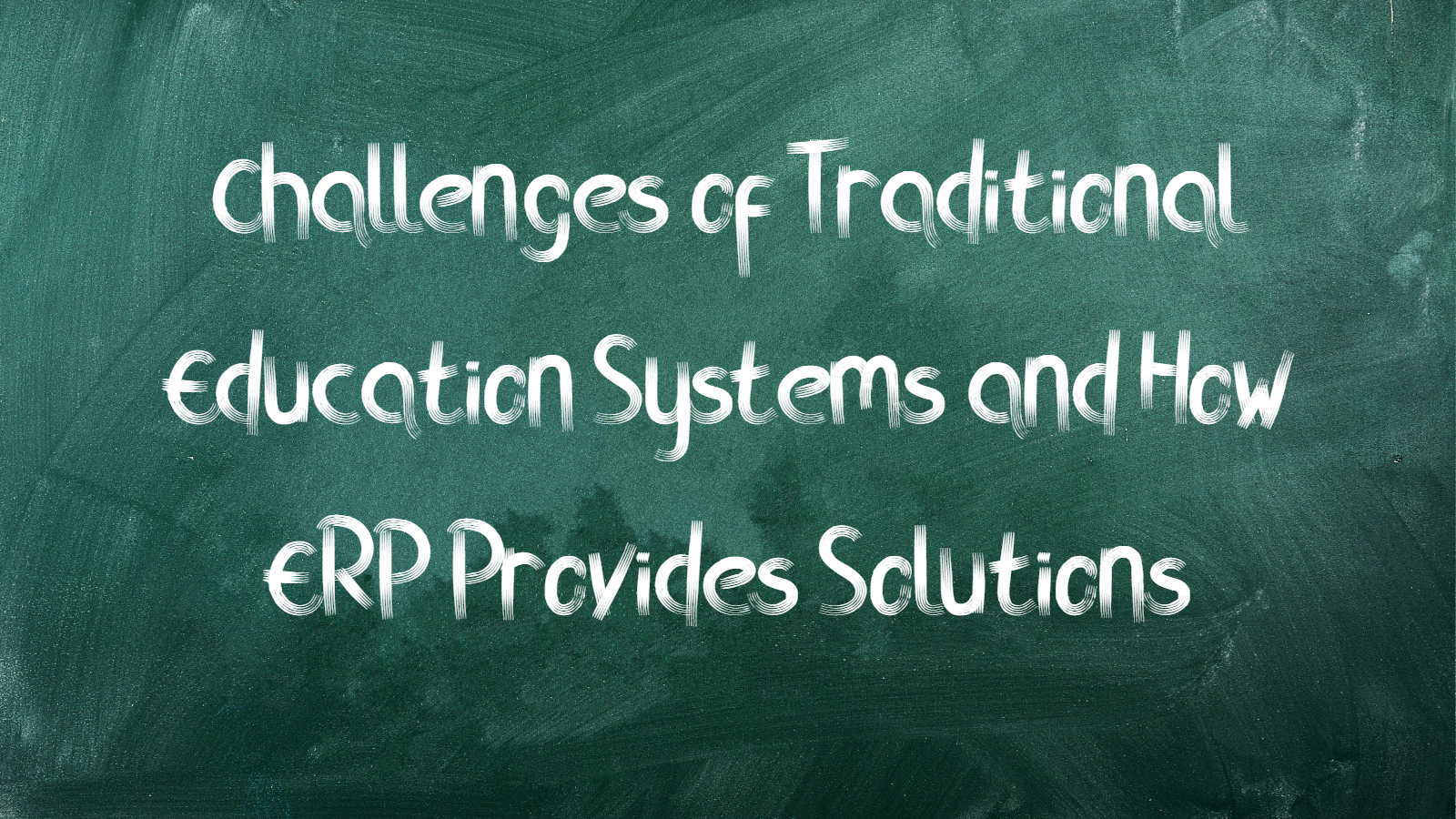ERP system and its Importance
ERP, it stands for Enterprise Resource Planning. What does an ERP system actually mean? We can simply put out the meaning of ERP system as a business management software that enables an organization to integrate all the tasks of each department into one system, in order to carry out the business operations accurately and efficiently.
ERP systems have been widely used by different industries in this digital era in the same manner for core processes of the business. Following are the areas where ERP solutions are often used:
- Manufacturing industry
- Healthcare industry
- Hospitality management
- Retail industry
- Education
- Defense and aerospace
- Automotive industry
- Construction
- Warehouse management
- Waste management
- Metal working industry
- Pharmaceutical industry
- Food and beverage industry
- Electronics industry
ERP applications connect every element of an organization. An ERP system allows for better performance and activity control that helps in planning, budgeting, reporting, and in maintaining the financial stability of the business. ERP software ensures that there is a proper management and utilization of resources. The prime key for the growth of any business is continuous improvement and optimized use of resources without compromising the quality provided.
With effective ERP business can synchronize the flow of data and communication between different departments and get a real time visibility in the inner jobs of the organization, so that there is a reduced usage of manpower and a continuous flow of operations that helps the business in making right decisions at right time. The right ERP helps in collecting and storing data into one centralized place from areas such as
- Financial management
- Inventory management
- Warehouse management
- Supply chain management
- Order management
- Product management
- Vendor management
- Data management
- Point of sales
- Human resources management
- Customer management
ERP can enhance your business in following ways:
-
Adaptability:
In a rapidly evolving technological environment, it is essential for the business to respond to the changes. The right ERP structure will be flexible, standard, and scalable which is enough to adapt to the dynamic environment. Smooth workflow of business operations can be made possible by implementing specific applications to the business, which will promote to the growth process.
-
Information streamlining
The prime aim of any ERP is to integrate all complex activities of the organization into one system. Many businesses are still arguing that it’s tough to manage the flow of information. With an accurate ERP system there can be a centralized control over information flow making it easy for the executives to access real time data.
Mitigation and risk reduction
With the introduction of automation and AI it has become easy to carry out the core business operations, timely reporting, reducing manual tasks, reducing human errors thereby freeing up employees’ time which will help them in increasing their productivity. A perfect ERP solution will also add to the success of the business by reducing the overall operational costs.
-
Optimizing efficiency and productivity
ERP packages serve to simplify the business operations eliminating the time and manual efforts. Repetitive tasks are carried out automatically. Bugging between the different departments can be removed through automation. For example, the accounting team can get the reports on sales without relying on the sales team. ERP empowers speedy decision making between the stakeholders, allowing them to monitor the performance of the business.
-
Improve security
Everyday tasks like order entry, stock variation, purchasing, pricing, shipping, billing etc. have made it easy for the workers of the organization through automation. The ERP operating system provides access to one-time information from a single platform. The transactions are safe and secure in an all structured ERP environment.
-
Better communication
Communication is an intrinsic instinct of all living beings. Similarly, it is also important for the business to communicate properly. Earlier there were many visible and invisible communication barriers in an organization. It has all been eliminated now with the help of ERP softwares as there is a centralised system of communication. This helps in expeditious and efficacious controlling of the business operations.
-
Client satisfaction
Customer satisfaction is one of the most important indicators of consumer purchase intentions and loyalty. Nowadays there are numerous brands and clients easily switch their love brands. Even some research states that it is 6-7 times more expensive to acquire a new customer than it is to keep a current one. On an average, loyal customers are worth up to 10 times as much as their first purchase. Customers have to wait for ages to get a response or comments from the business. The main aim of the business is to keep the clients happy and satisfied. Implementation of ERP solutions can provide better customer services, which will help the company in building a direct interaction between the customers. This will also help the business to easily obtain feedback from the customers, their satisfaction level and what they are expecting from the company in future, through which the trust of the customers can be easily gained.
-
Business growth
The prime objective of every business is to achieve growth. Business either grows slowly or rapidly. Long-time growth is harmful to companies’ health, customer satisfaction, and accuracy as the company struggles to keep up with demand. All of these can be attained through implementation of an ERP project. Managing and controlling of the processes can be done tediously without any obstruction. A robust ERP solution will keep the business completely empowered and flourished which will automatically reflect on the business growth.
Wrap-up
It is visible that, nowadays there is a fierce business competition, and the organizations must be able to keep up with the ever-changing technological trends. Usage of outdated or manual methods can loosen the grip of business in this competitive world. ERP applications are compatible with any business regardless of its size.
The benefits of implementing an ERP system in a business organization will surpass the negatives because ERP gives the company a competitive and financial boost while improving company productivity, collaboration and communication.








